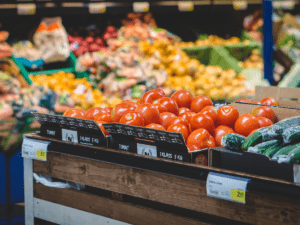As South Africans, we all want to make the most out of our hard-earned cash, especially at a time when the cost of living seems to be increasing every day. Bulk buying has become a popular strategy for many consumers to save money and time, but it can also lead to wastage and overconsumption if not done correctly. In this article, we’ll discuss how to do it right, the pros and cons of bulk buying, and what to look out for when engaging in bulk buying.
Editorial Note: We earn a commission from partner links on Money Unscripted blog. Commissions do not affect our editors' opinions or evaluations.
What is Bulk Buying?
Bulk buying is the process of purchasing goods in large quantities, typically at a lower price per unit than if they were bought individually. This strategy is often used by businesses, but it’s also popular among households who want to save money and reduce the frequency of their shopping trips.
How to do it right:
Make a list: Before heading out to the store, make a list of the items that you need to buy in bulk. This will help you avoid impulse buying and ensure that you only purchase what you actually need.
Compare prices: Check the prices of the items you intend to buy in bulk at different stores to determine where you can get the best value for your money. Don’t forget to factor in transport costs when comparing prices.
Check expiration dates: Before purchasing items in bulk, check the expiration dates to ensure that you don’t end up with products that will go bad before you can use them.
Buy what you use: Only buy items that you know you’ll use. Don’t stock up on items that you rarely use or may expire before you can consume them.
Store properly: Proper storage is crucial for ensuring that your bulk purchases remain fresh and in good condition. Consider investing in airtight containers to keep your products fresh for longer.
Read: It’s Time to Consider a Retirement Annuity
Pros and Cons of Bulk Buying:
Pros:
Cost-saving: Buying in bulk often means that you pay less per unit than if you were to purchase items individually.
Convenience: It eliminates the need for frequent trips to the store, saving you time and money.
Reduces packaging waste: Buying in bulk reduces packaging waste, making it an eco-friendly option.
Cons:
Storage space: Bulk purchases take up more storage space, which may be a problem if you have limited space.
Expiration dates: Buying in bulk may result in products expiring before you can use them, leading to waste and financial loss.
Impulse buying: Bulk buying can lead to impulse buying, causing you to purchase items that you don’t actually need.
What to Look Out for When Bulk Buying
Quality: Ensure that the products you purchase in bulk are of good quality. Poor-quality products may end up costing you more in the long run.
Discounts: Look out for discounts and promotions when buying in bulk to get the best value for your money.
Return policies: Check the return policy of the store before making bulk purchases. Some stores may not accept returns for items bought in bulk.
Bottom Line
Bulk buying can be a great way to save money and time, but it requires careful planning and consideration to avoid overconsumption and wastage. By following the tips and advice in this article, you can make the most of bulk buying and enjoy its many benefits. Remember to compare prices, check expiry dates, and store your purchases properly to get the most out of your experience.

Here are the courses:
1. How to master your money mindset
3. How to build an emergency fund
5. How to create multiple streams of income
6. Investment Guide: What’s your ‘Why’ in investing








